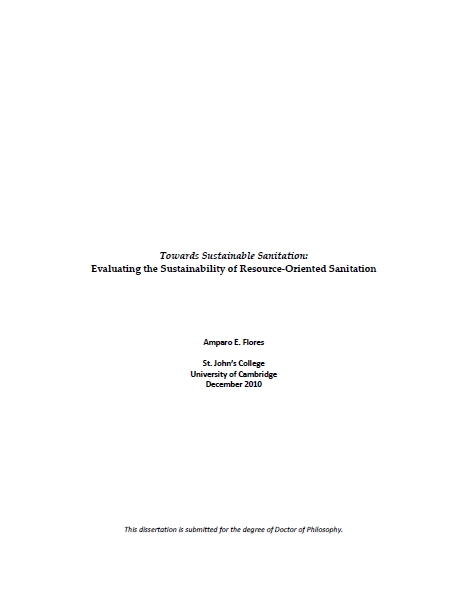Towards sustainable sanitation: evaluating the sustainability of resource-oriented sanitation
Flores, A. (2010)

Published in: 2010
Publisher:
PhD Thesis, University of Cambridge, UK
Author:
Flores, A.
Uploaded by:
SuSanA secretariat
Partner profile:
common upload
14882 Views
345 Downloads
Location of library entry
Content - Summary
Resource-oriented sanitation systems are designed to recover resources from wastewater while minimising the demand on other resources, particularly water and energy. This research explores the proposition that such systems offer a more sustainable alternative to conventional waterbourne systems. Its centrepiece is a case study of the world’s largest urban dry sanitation system designed for complete resource recovery, located at the Erdos Eco-Town Project (EETP) in the Inner Mongolia Autonomous Region of China. In the case study, the sustainability of the EETP’s dry system is compared against that of a conventional waterbourne system based on technical, environmental, economic, and societal indicators.
Bibliographic information
Flores, A. (2010). Towards sustainable sanitation: evaluating the sustainability of resource-oriented sanitation. PhD Thesis, University of Cambridge, UK
Filter tags
Case studies in other formats East Asia & Pacific English Faeces or faecal sludge Greywater or wastewater Urban (entire city) Urine Urine diversion dehydration toilets (UDDTs)














